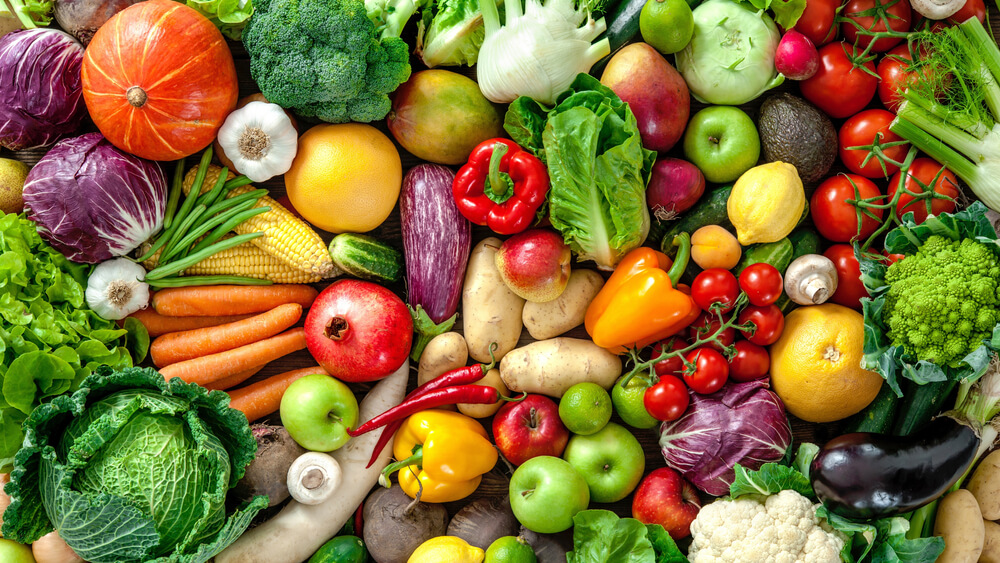Glaucoma is not a curable eye disease and vision loss due to glaucoma cannot be regained. Therefore, it is of utmost importance to try to mitigate and slow the progression of the disease for people carrying the diagnosis and aid in prevention for individuals at risk. Nutritional and lifestyle choices can positively influence glaucoma by slowing its progression, helping control intraocular pressure and overall help maintain the health of the eye.
As the saying goes, “you are what you eat”, we at Michigan Glaucoma encourage you to maintain a healthy lifestyle and eat a balanced diet. Although eating foods loaded with nutrients is commonly accepted to help maintain healthy eyes, research shows that specific nutrients are more beneficial when it comes to protecting the eyes and reducing the risks of certain eye diseases.
Nutrition, Lifestyle, and Glaucoma – Nutrition’s Effect on Glaucoma
Good nutrition can play a role in helping to prevent glaucoma, as well as helping to maintain eyesight in patient with glaucoma. Foods that have been shown to provide protection for vision include those that contain high levels of antioxidants, vitamins A, C, E and zinc.
Lutein and zeaxanthin, nutrients found naturally in the eyes, are believed to be especially beneficial to eye health and can reduce the risk factors for glaucoma. These antioxidants can be found in high amounts in spinach and other leafy green vegetables. In general, to keep your eyes healthy, keep it colorful! Eat colorful fruits and vegetables, especially those orange and green.

Green foods beneficial for eye health include:
- Brussel sprouts
- Broccoli
- Collard greens
- Cabbage
- Kale
- Green peas
- Green pepper
- Green beans
- Olives
- Cucumbers
- Celery
- Avocadoes
Orange and yellow foods that can help maintain vision are:
- Citrus
- Carrots
- Sweet potatoes
- Cantaloupe
- Apricots
- Cheese
- Pumpkin
- Summer squash
- Corn
- Papaya
Other foods that promote healthy eyes:
- Seafood, nuts, and flaxseed (due to the omega-3 fatty acids)
- Berries
- Egg yolks
- Tomatoes (or products containing lycopene)
- Cauliflower
- Whole grains and cereals
- Milk
- Lean meats
- Green tea and coffee (unsweetened and in moderation if caffeinated)
- Dark chocolate
Foods to Avoid with Glaucoma
In general, avoid foods that may increase your blood pressure. Salt consumption should be kept to a minimum. Avoid foods that are high in saturated fats. In general, if it is bad for your body, it is bad for your eyes. When drinking large amounts of liquid, spread out the intake over the course of the day, as consuming it in a short period of time can raise your eye pressure.
Nutritional Supplements for Glaucoma Patients
Some doctors often recommend nutritional supplements, especially patients eating highly refined food. Glaucoma patient should always consult their ophthalmologist before beginning any supplement regiment, as it is possible to take too many vitamins and minerals. Consuming too much of certain herbs, vitamins or minerals can result in serious health problems. For example, consuming herbs such as ginkgo and bilberry may increase the risk of bleeding with glaucoma surgery. Just remember, while good nutrition plays a role in disease prevention and overall health, it is not a treatment for glaucoma.
Lifestyle Recommendations for Glaucoma
The most important lifestyle change in a patient diagnosed with glaucoma is compliance with treatment. Most glaucoma treatments involve placing eye drops in to the eye, so understanding how to do so is of utmost importance. Successful treatment depends on adhering to your medication schedule. We at MGS will help you with tables, guides and instructions.
Other lifestyle recommendations to maintain ocular health include:
- Safe exercise: Studies show that moderate exercise can reduce several risk factors for glaucoma. Your exercise and glaucoma should both be monitored by your doctor.
- Elevate the head while sleeping: A 20-degree incline with a wedge pillow can reduce intraocular pressure.
- Stress relief: Use of relaxation techniques or meditation can help patients cope with stress which can be a trigger for acute angle-closure glaucoma.
- Regular ophthalmologic check-ups: Since glaucoma typically has no warning signs, having an annual comprehensive and dilated eye exam will allow for early detection of glaucoma (especially if you are at high risk, such as family history). If you are diagnosed with glaucoma, your ophthalmologist should monitor your condition regularly.
While no diet or lifestyle change can replace glaucoma treatment, evidence suggests that overall healthy eating and moderate exercise can contribute to glaucoma prevention, glaucoma control and overall good ocular health.

